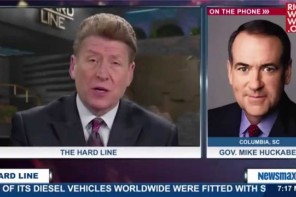I’ve been noticed a boomlet of sorts in the use of the phrase “progressive Christianity.” It seems like many more people are willing to embrace that descriptor than have in recent years.
In no particular order, there’s the Progressive Christian Alliance, Progressive Christians Uniting, the Institute for Progressive Christianity, the Progressive Christian Witness and the Progressive Christian (formerly known as Zion’s Herald). There’s even a Progressive Community Center in Chicago, which bills itself as “the people’s church.” More recently, there’s been the Center for Progressive Renewal, and various institutions have been willing to describe themselves as “progressive” or having the futhering of “progressive faith” as part of their core mission. See for example Union Theological Seminary in New York, Eden Seminary in St. Louis, the Beatitudes Society, even the Pilgrim Center for Reconciliation (at least when its website is up and running), which is a progressive retreat center of sorts.
That, if you can believe it, is just a quick and dirty list. I’ve probably missed somebody. But it’s sufficient to demonstrate a couple of things, I think. First, more people are willing to wear the “progressive” label as relates to their faith, not just their politics. Most of those links go to the church world, not the activist. Second, my denomination – the United Church of Christ – is right in the thick of it. There might be some self-selecting bias going on here, but it sure seems like whenever people talk about progressive Christians, the UCC’s not more than a few steps away. Perhaps I’m wrong about that. I’d love to see examples from other denominations or faith traditions, if anyone has them.
In any event, I don’t have any grand idea about what it all means, or even if it will last. This might turn out to be just today’s buzzwords and gone tomorrow.
But at the moment, I’m enjoying seeing my church stick up for a different kind of faith than the one that typically makes it through the media filter. My one enduring concern about it is language like this:
The Center [For Progressive Renewal]’s mission statement defines “progressive Christianity” as “a faith that believes God’s family includes all people; God’s people are responsible for caring for the environment, the poor, sick and vulnerable; that education, health care and civil liberties are vital to abundant life and therefore the desire of God for all people; and that truth is found more often in honest grappling with the questions than in absolute hierarchical pronouncement of the answers.”
I understand the desire to speak outside of church jargon, but it seems to me this is very much about political stances, not so much about who we are or who we are meant to be as church. I tend to Dietrich Bonhoeffer’s view that the church is sociologically and organizationally distinct, and should be talked about in and on its own terms.
That’s important because of course we’re not talking about God-flavored political progressivism, but about Progressive Christianity. If that perspective is to make it very far as a theological perspective, it’s going to have to develop beyond being nice and liberal. “Honest grappling with the questions” is a good start, as is “radical hospitality,” but there’s more to it than that. There always is. The ideas will need to be fleshed out and communicated as faith claims if “Progressive Christianity” is ever going to mean anything more than “hey, not all Christians are reactionary jerks.”




